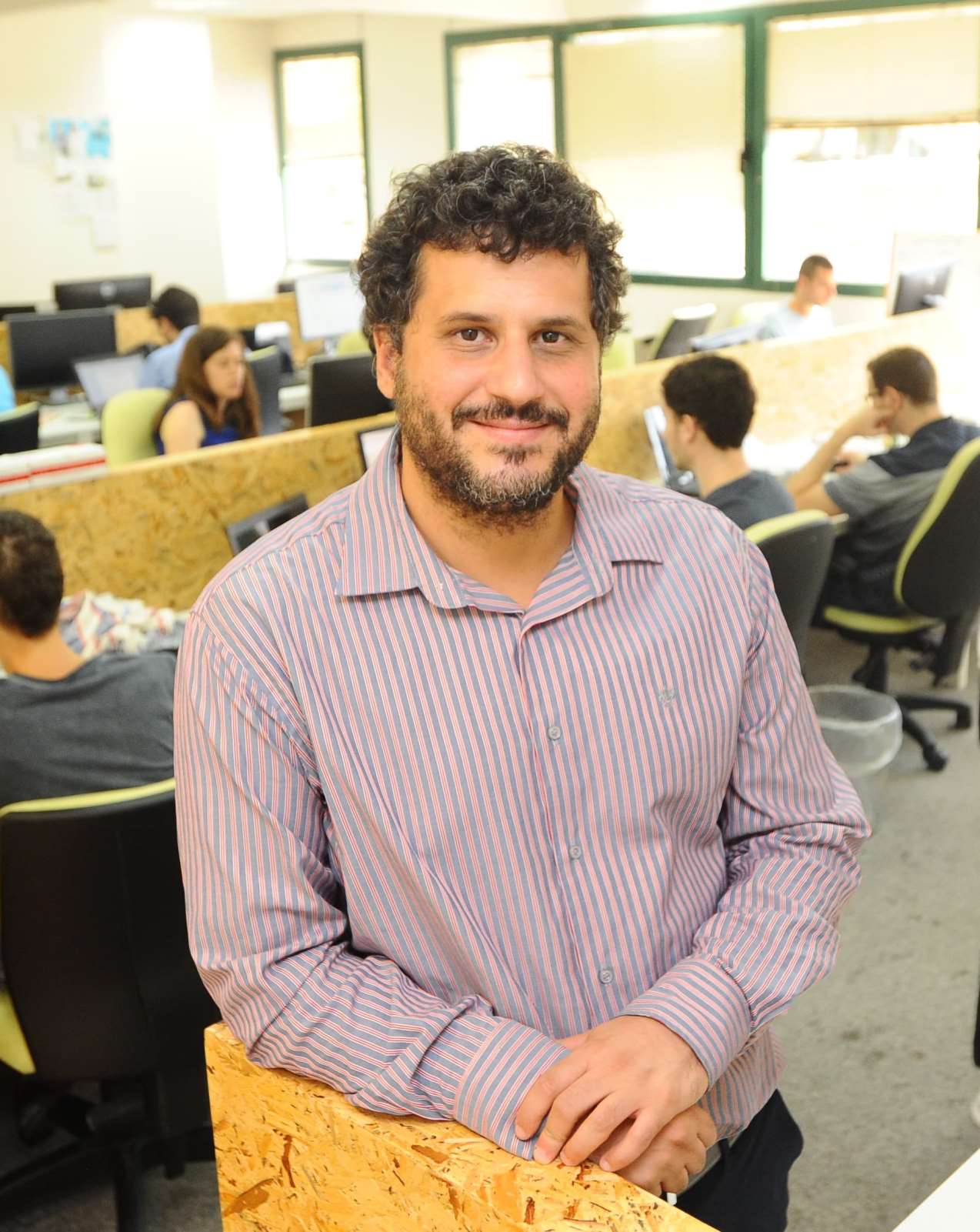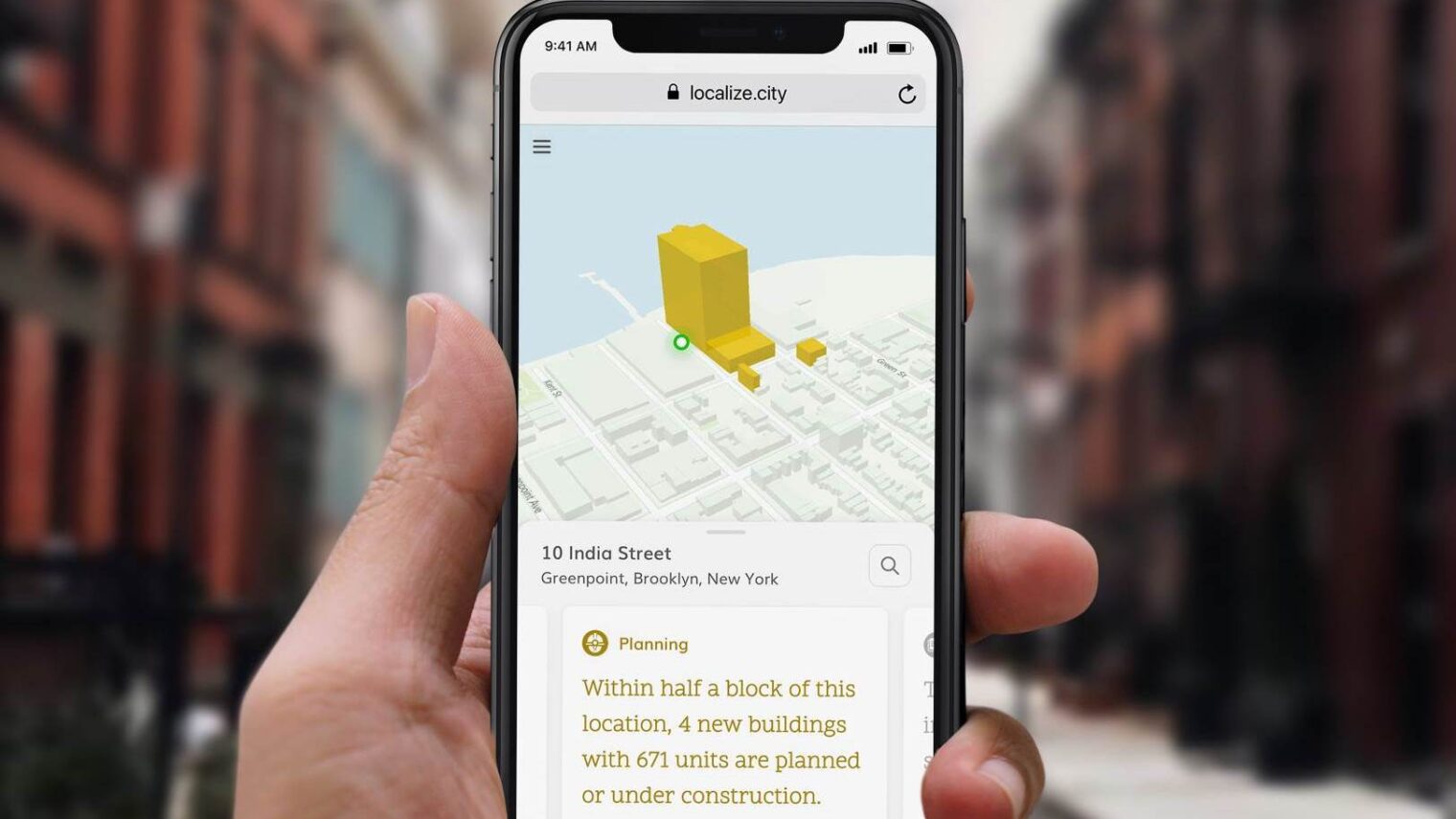Before Steve Kalifowitz moved into an Upper East Side apartment in Manhattan, he noticed a school around the corner. But nobody warned him about the twice-daily noise and traffic that would have made him wary of this location.
So when he met the team of Localize.city – an Israeli real estate-tech startup whose novel website extracts helpful insights about any New York City address from thousands of datasets – he agreed to serve as US operations director and president.
“It’s hard to find anyone who hasn’t regretted moving somewhere because they didn’t realize what life would be like,” Kalifowitz tells ISRAEL21c. “When I heard the mission of Localize.city I said this is something I want to do for the people and for the city of New York.”
Investors like the idea, too — Localize.city just raised $8 million in Series A funding to expand its staff and geographic reach.

Launched in 2016, Localize.city is the subsidiary of Madlan, an Israeli website that successfully tested the waters for this radical new idea of using artificial intelligence to help buyers and renters make more informed decisions.
Localize.city’s engine uses machine-learning algorithms to gather and analyze a vast amount of raw data available in public and commercial databases, social networks and its own proprietary databases in order to draw conclusions about a property’s advantages and drawbacks.
“People are forced to make the biggest transaction of their lives without really knowing what they are getting into.”
These conclusions are presented on the site instantaneously in the form of up to 30 succinctly worded insights regarding the neighborhood’s prices, transportation, livability, community and potential nuisances. The site searches any address in New York City’s five boroughs.
ISRAEL21c input a NoHo address and learned that this area has many wealthy, highly educated residents in their mid-20s to mid-40s; is popular with tourists booking short-term rentals; has a bike-friendly area and good public transportation. On the downside, there’s noisy, air-polluting truck traffic and a new building is soon to be constructed within half a block. According to a family member who lives at that address, all the insights were on target and impressive in breadth.
A lot of brainpower is behind what Kalifowitz says is a one-of-a-kind website.

The company’s founders are graduates of an elite IDF technological unit and the Rothschild Scholars Technion Program for Excellence. Founder and CEO Asaf Rubin previously headed algorithm development at native advertising and content discovery platform Taboola. Design VP Mushon Zer-Aviv designed the map experience for Waze.
The Localize.city Insight Engine was created by 60 algorithm developers, data scientists, statisticians, geographic information system experts, urban planners and appraisers.
Localize.city currently has 110 employees, 90 at its R&D center in Tel Aviv and 20 at its New York City offices under Kalifowitz, previously head of strategic operations in the Asia-Pacific and Middle East for Twitter.
Frustrated homebuyers
“A family that considers buying a specific real-estate asset and is interested to know what it would be like to live in that house or apartment cannot find full and practical answers on the web. That is why people are forced to make the biggest transaction of their lives without really knowing what they are getting into. This is the biggest consumer problem the Internet has yet to solve,” says Rubin.
“Before founding Localize.city, we interviewed hundreds of frustrated homebuyers who talked about mistakes they made due to lack of information. We analyzed forums and social networks, which were — and continue to be — flooded with failures in the home-buying process.”
Since its founding in 2012, parent company Madlan has proved a roaring success, with more than a million monthly visitors and thousands of paying customers including government agencies, banks and real-estate developers. Madlan’s operations in Israel serve as a global development laboratory and source of revenue totaling millions of dollars annually.
Kalifowitz tells ISRAEL21c that a few ideas for revenue models will be tested later this year for Localize.city. “One thing we will never do is charge residents or home buyers and renters to access this information,” he says.
Brokers and real-estate attorneys and developers, on the other hand, are willing to pay for information that adds value to the services they offer.
“One broker had a customer who wanted an apartment that had a great view. Using insights from Localize.city, the broker was able to say this view will be blocked soon by a new high-rise in the pipeline, and suggested a different place. A real-estate attorney told us he was able to negotiate a better deal for a client because of insights we uncovered.”
Kalifowitz says 85 percent of the insights are written by AI, and the remainder by urban planners and an experienced New York City real-estate journalist on staff. “The results to date have been phenomenal: a month from the launch, New Yorkers read more than one million insights that our Insight Engine created.”
The fast-growing real-estate tech sector raised $12.6 billion in venture capital in 2017, an increase of around 300% compared to 2016.
The lead investors in Localize.city are semiconductor executive Avigdor Willenz, credited with the $2.7 billion sale of Israel’s Galileo to Marvell Technology Group in 2000; and Zvi Limon, chairman of the board of Taboola and a cofounder of Magma Venture Capital.
“We expect within a year to be in five to 10 more cities,” says Kalifowitz. And eventually the mobile-friendly website could be augmented with a Localize.city smartphone app.
For more information, click here.















